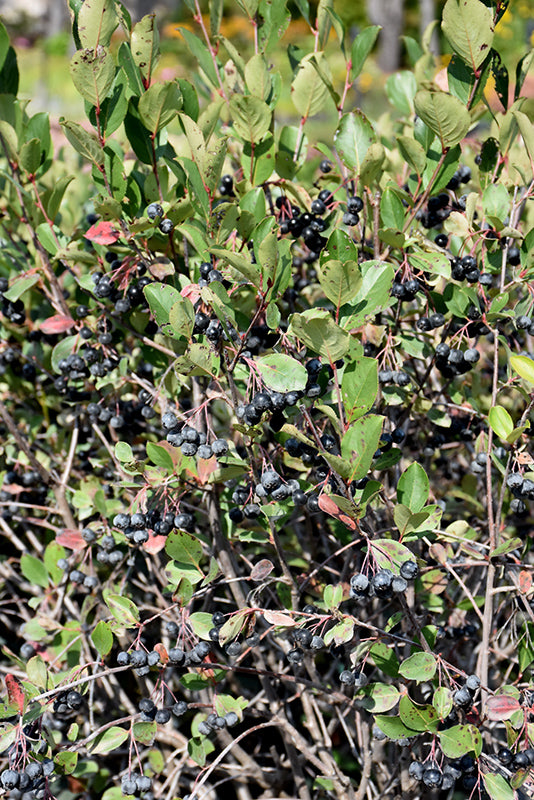Dwarf Black Chokeberry features showy panicles of white flowers with brick red anthers at the ends of the branches in mid spring. It has forest green deciduous foliage. The glossy oval leaves turn an outstanding red in the fall. It produces black berries from late summer to late winter.
Landscape Attributes
Black Chokeberry is a multi-stemmed deciduous shrub with an upright spreading habit of growth. Its average texture blends into the landscape, but can be balanced by one or two finer or coarser trees or shrubs for an effective composition.
This shrub will require occasional maintenance and upkeep, and is best pruned in late winter once the threat of extreme cold has passed.
Planting & Growing
Black Chokeberry will grow to be about 3 feet tall at maturity, with a spread of 3 feet. It has a low canopy, and is suitable for planting under power lines. It grows at a slow rate, and under ideal conditions can be expected to live for approximately 20 years.
This shrub should only be grown in full sunlight. It is an amazingly adaptable plant, tolerating both dry conditions and even some standing water. It is not particular as to soil type or pH, and is able to handle environmental salt. It is somewhat tolerant of urban pollution. This species is native to parts of North America.
Details
Botanical Name
Aronia melanocarpa
Common Name
Dwarf Black Chokeberry
Hardiness Zone
- 2b
Appearance
Max Height
3 feet
Max Spread
3 feet
Plant Form
- Upright Spreading
Foliage Colour
- Green
Fall Colour
- Red
Flower Colour
- White
Edible
Edible
- YES
Edible Component
- Berry
Edible Harvest Period
Late Summer
Edible Use
- Preserves
Fruit Colour
- Black
Growing
Flowering Period
Mid Spring
Moisture
Adaptable to Dry and Wet
Sunlight
Full Sun
Maintenance
Occasional
Deer Resistance
Get more information about this plant and others with our comprehensive plant finder tool.




